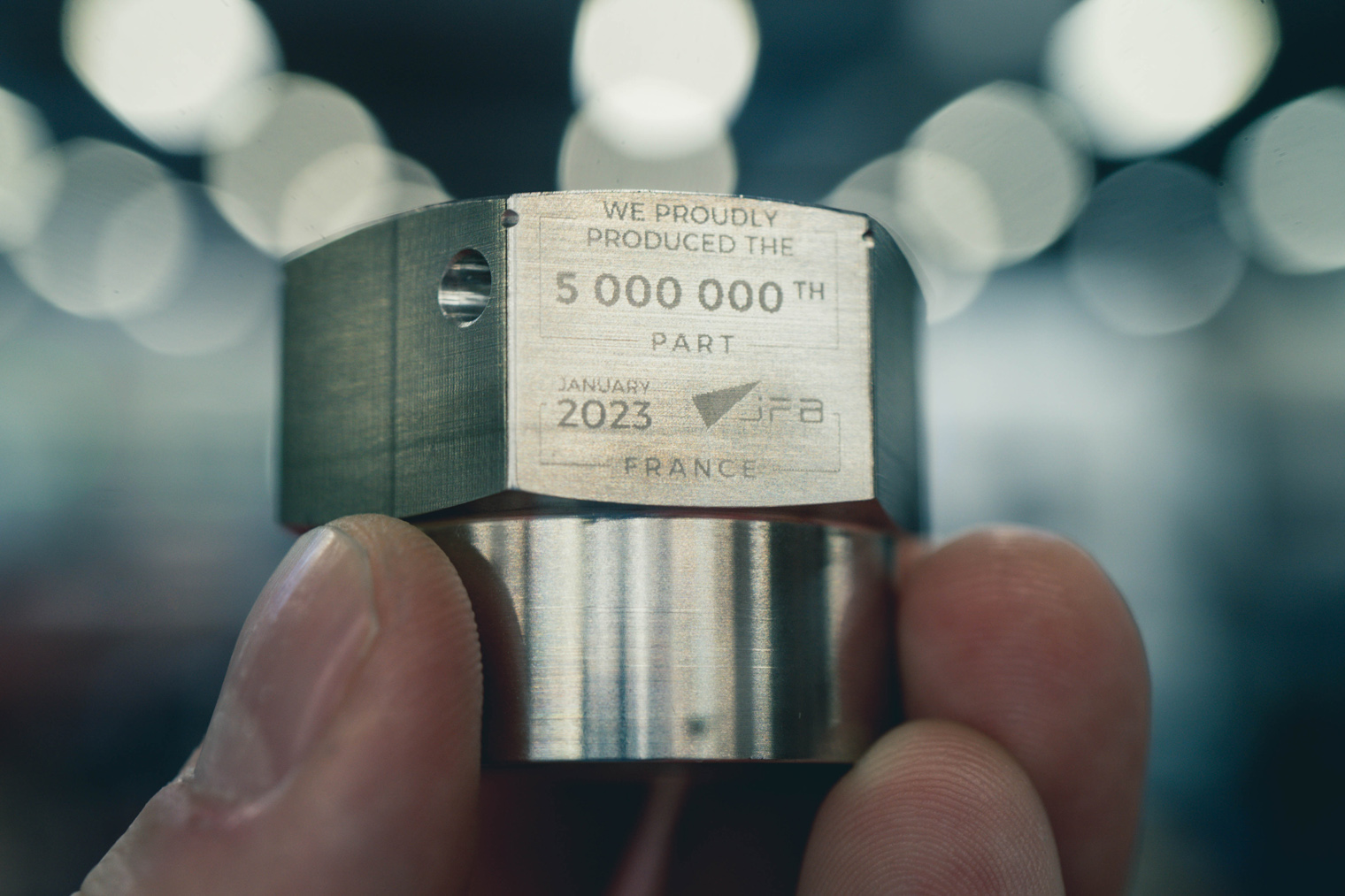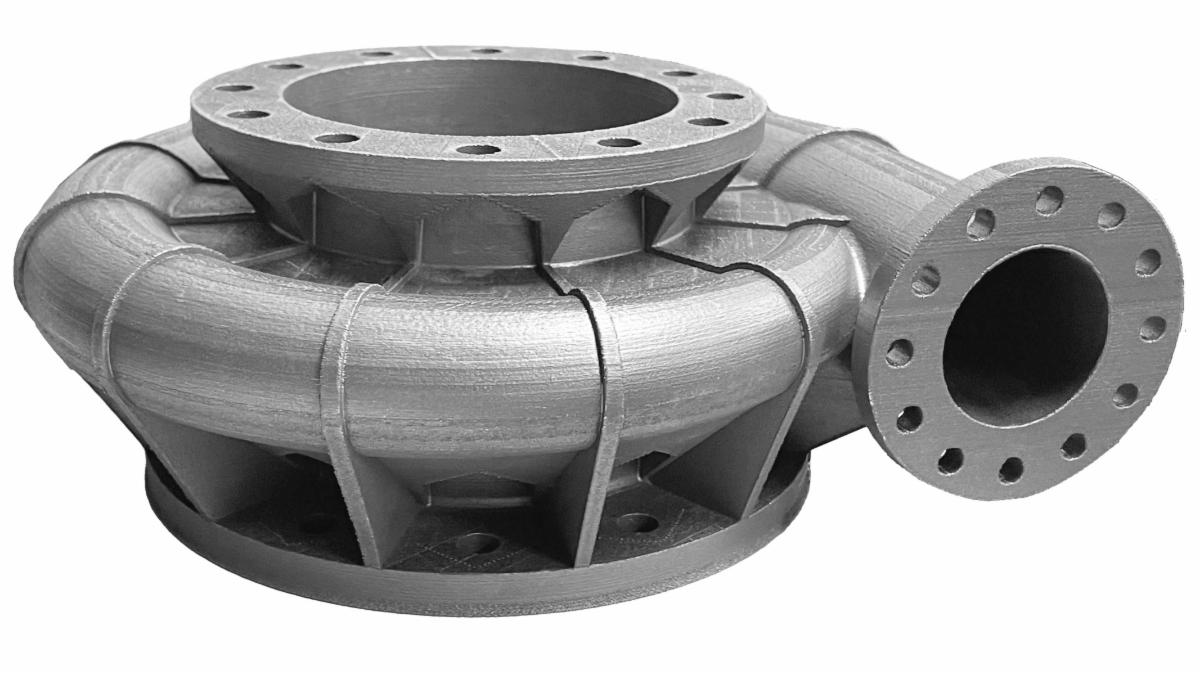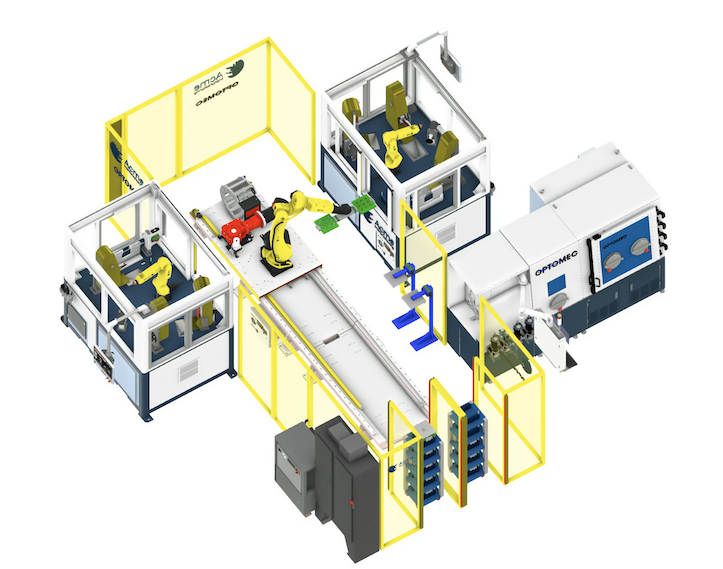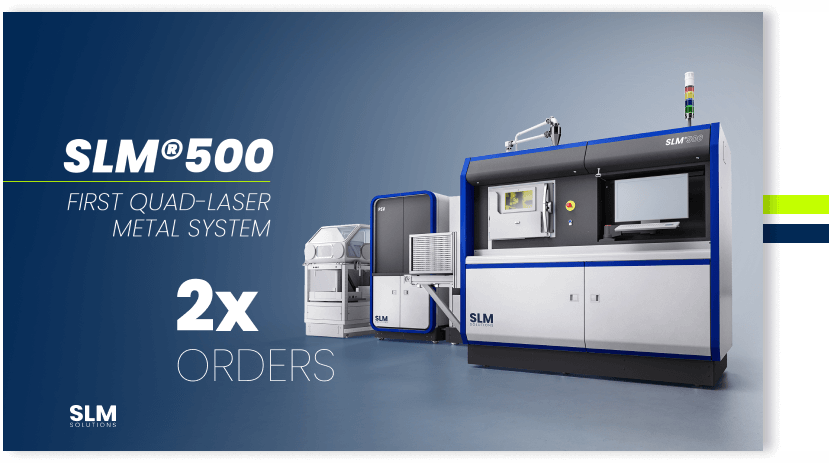Landmark figure comprises component parts used to produce company’s innovative LULYLOK™ B-nut self-locking device and borescope self-locking plug.
Sidebar
Aerospace


Visser Precision Purchases Two Sapphire Printers From Velo3D to Expand its Additive Manufacturing Capabilities for Aerospace Customers
The Denver-based Contract Manufacturer Will Receive the First Sapphire Printer Calibrated for Haynes® 214®, a Nickel-based Superalloy Utilized in High-temperature Environments for Oxidation Resistance, and Another One Calibrated for Inconel® 718

Hexagon and Stratasys unlock 3D-printed PEKK’s lightweighting potential for aerospace engineers with simulation
Hexagon’s Manufacturing Intelligence division and Stratasys, a leader in polymer 3D printing solutions, have applied Hexagon’s simulation technology to capture the behaviour of Stratasys’ high-performance, ultra-lightweight Antero™ reinforced polyetherketoneketone (PEKK) materials and its additive manufacturing processes. These rigorously validated simulations offer Stratasys customers unique insight so they can lightweight components and introduce new sustainable aircraft and spacecraft faster.

Optomec and Acme Manufacturing Showcase First Automated Workcell for Adaptive Repair of Turbine Parts at Formnext
Turnkey Solution Includes Seamless Integration of Prep, Additive Repair and Finishing Functions

TURN UP: Larger, Lighter Additive Parts
GE Aerospace Advanced Technology Munich-led European consortium unveils one of the largest-ever metal 3D-printed aerospace parts and demonstrates significant cost, weight and time savings.
One-meter-in-diameter part manufactured in nickel alloy 718 on a GE Additive system is one of largest aerospace parts additively manufactured using the Direct Metal Laser Melting (DMLM) process.
Shift from conventional casting to AM reduces cost and weight by 30%.
Consolidation combines over 150 parts into one.
Lead time was reduced from more than nine months to two and a half months.

Optomec and Acme Manufacturing Showcase the Industry’s First Fully Automated Work Cell for the Additive Repair of Turbine Parts
Turnkey Solution Includes Seamless Integration of Prep, Additive Repair and Finishing Functions

Rapid Prototyping for Aviation Wi-Fi with Quickparts & Gogo Business Aviation
Gogo is the world's largest provider of broadband connectivity services for the business aviation market. The company offers a customisable suite of smart cabin systems for highly integrated connectivity, inflight entertainment and voice solutions. Gogo's products and services are installed on thousands of business aircraft of all sizes and mission types from turboprops to the largest global jets.

Hermeus to Build World's Fastest Aircraft with Newly Acquired Velo3D Sapphire Printers
Using Velo3D’s end-to-end metal additive manufacturing solution, the hypersonics aerospace company will 3D print parts for its Mach 5 Chimera engine and Quarterhorse aircraft

SLM announces sale of two more SLM 500s to Rolls-Royce
SLM Solutions Group AG ("SLM Solutions," "SLM" or the "Company") has announced the sale of two more SLM®500s to Rolls-Royce in 2022.
StarHagen Joins the Velo3D Contract Manufacturer Network to Unlock Design Freedom for Aerospace Customers
Velo3D’s end-to-end solution will expand the contract manufacturer’s capabilities by delivering high-quality parts for high-performance designs

UK Teen Skips DfAM, Designs and Prints One-Piece “Unmanufacturable” Aerospike Rocket
With shortened classroom time due to the country’s Covid lockdown, U.K. high-school student Ewan Craig finished required studies early and turned his attention to an old pastime: understanding rockets. Using free afternoons and evenings, Ewan, then 16, dove into the mysteries of propulsion and all things aerospace.

 Deutsch (Germany)
Deutsch (Germany)  Polski (PL)
Polski (PL) 







